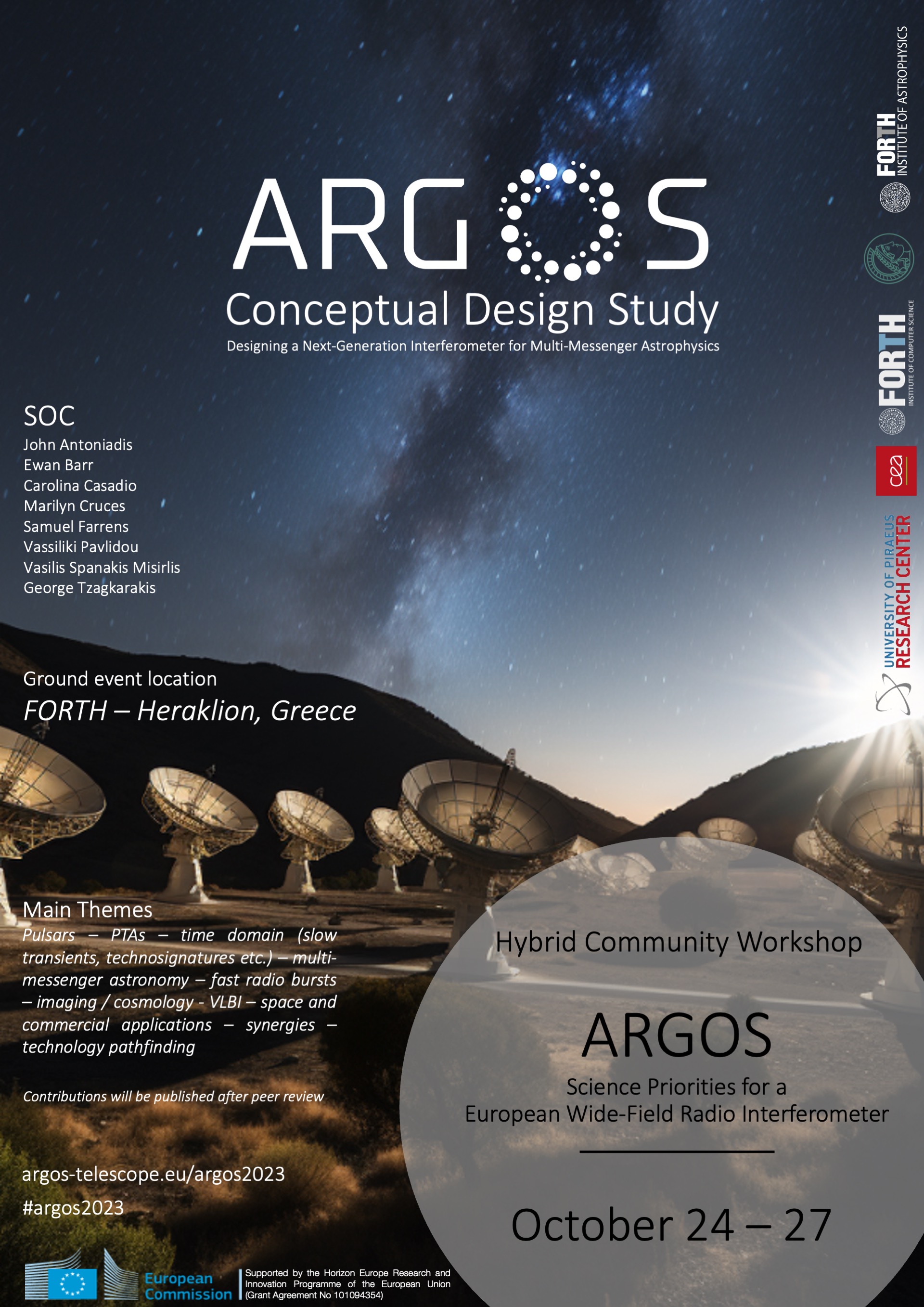ARGOS2023 - 24-27 October 2023 (Hybrid Workshop)
Astronomy is being transformed by public surveys performed with instruments that are searching the sky for multi-messenger signals with high speed and sensitivity, while delivering science-ready datasets to the community. While radio astronomy is not yet fully participating in this revolution, an instrument following the same philosophy, which would finally open the dynamic radio sky for exploration, is not only urgent but inevitable.
ARGOS is a concept for a leading-edge, low-cost, sustainable European astronomical facility that will finally realise this ambition, directly addressing multiple fundamental scientific questions, from the nature of dark matter and dark energy to the origin of fast radio bursts and the properties of extreme gravity, thereby satisfying urgent needs of the community.
The project has recently entered a three-year detailed conceptual design phase which is supported by a Horizon Europe Infrastructure Development Grant. The overarching objective for the ARGOS conceptual design study is to prepare fully for the subsequent rapid implementation of a leading-edge wide-field interferometer in Europe and ensure its optimal integration into the network of existing and future international astronomical facilities.

Meeting Goals
The workshop aims to bring together experts and stakeholders from various fields of astronomy to discuss the scientific potential and challenges of a future European wide-field radio interferometer.
The workshop will cover topics such as:
- Recent advances and emerging themes in radio astronomy and transient astrophysics
- The science priorities for ARGOS
- The technical requirements and design options for the instrument: (configuration, data processing, calibration etc)
- The synergies and complementarities of ARGOS with other existing and planned radio facilities such as LOFAR, SKA, DSA2000, MeerKAT, ASKAP, FAST, Chime, etc.
- The roadmap and timeline for the development and implementation of ARGOS
The workshop will feature invited and contributed talks, posters, and panel discussions. Submissions that contribute to the development of the ARGOS Science Requirements will be compiled in a proceedings volume (the ARGOS blue book) after peer review.
Format
This will be a hybrid meeting. The ground event location is the Foundation for Research and Technology, Hellas in Crete, Greece.
Themes
- Pulsars
- Pulsar Timing Arrays
- Time Domain (slow Transients, technosignatures etc.)
- Fast Radio Bursts
- Imaging
- Cosmology
- Very Long Baseline Interferometry
- Space and Commercial Applications
- Synergies
- Technology Pathfinding
